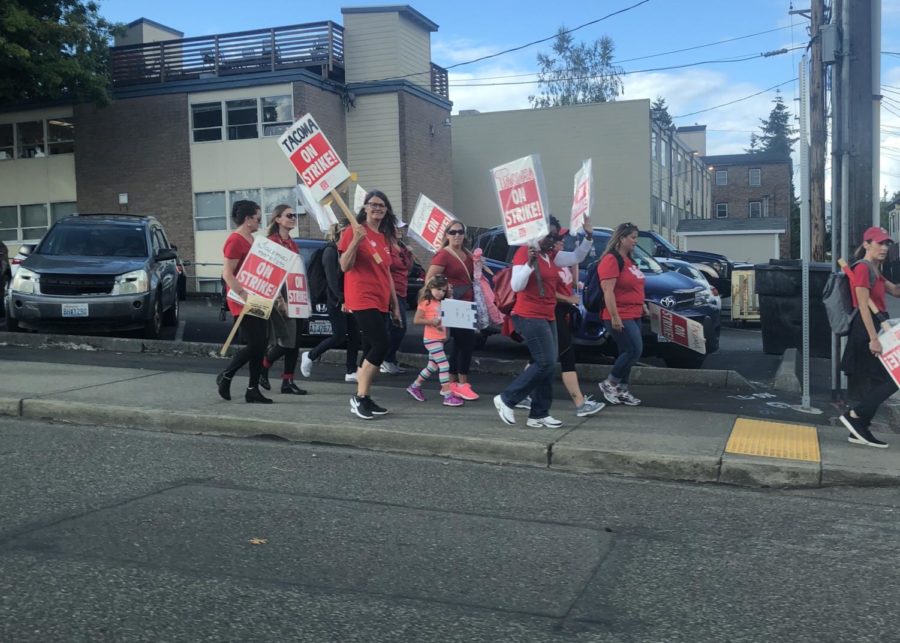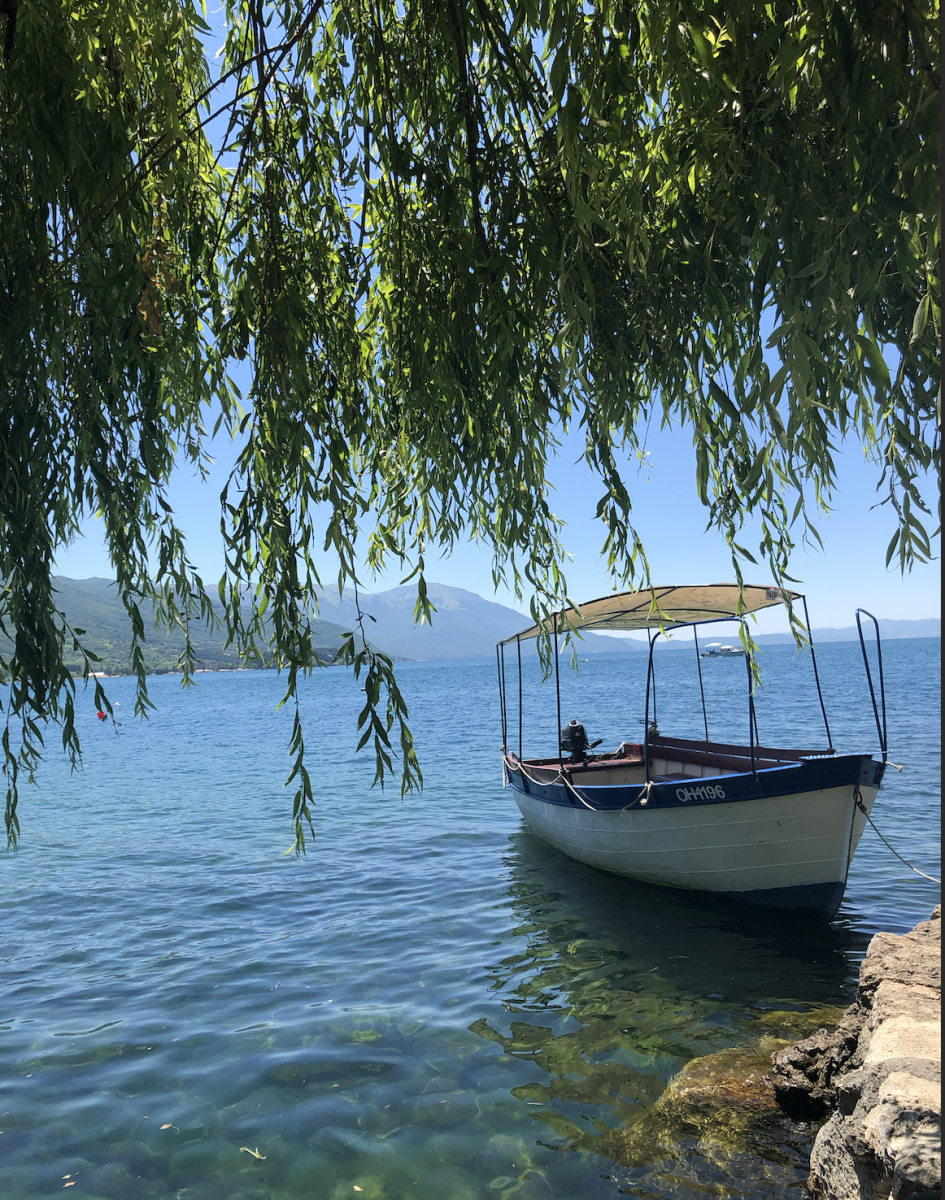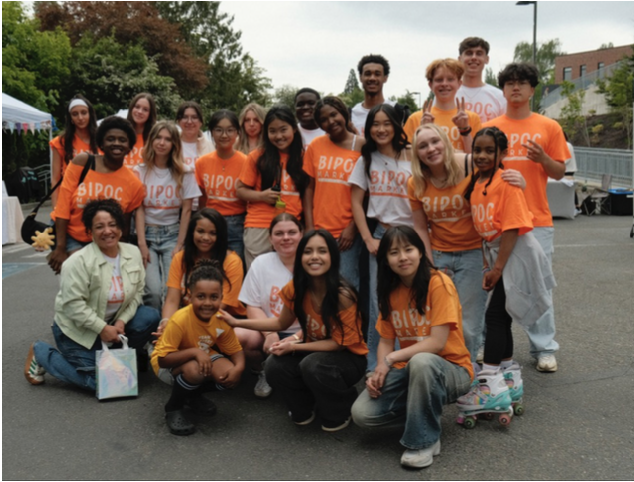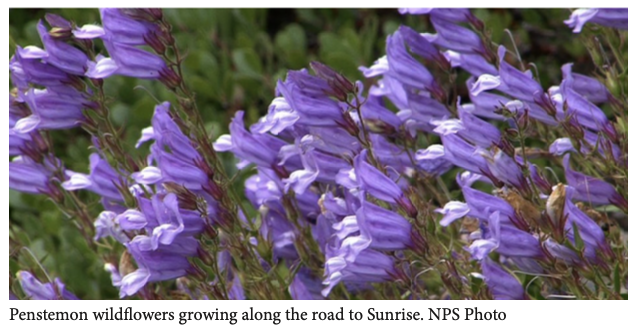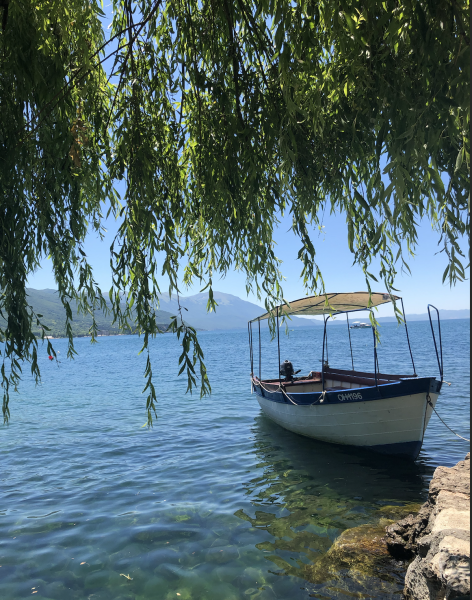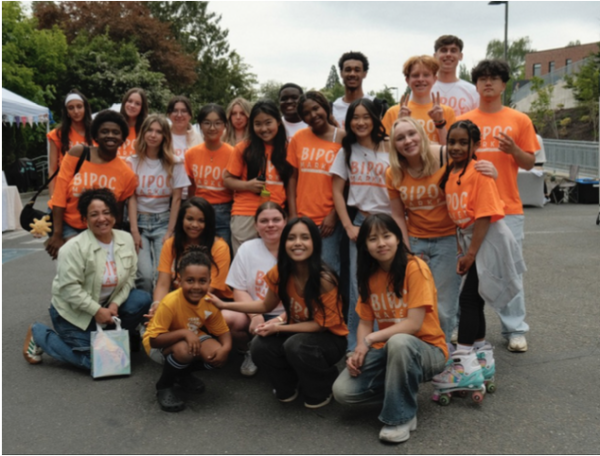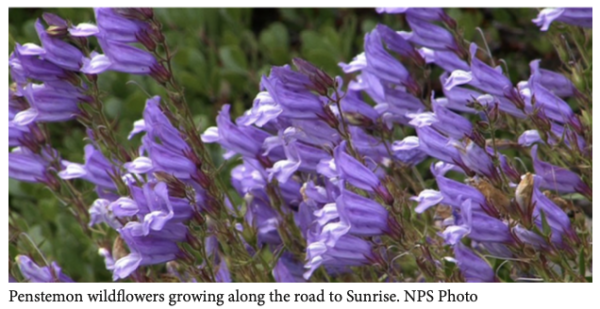Middle School alumni feel the effects of public school strike
October 5, 2018
Three Annie Wright Middle School alumni who recently started 9th grade at Stadium High School expressed their thoughts about the various consequences, and potential future consequences, caused by the recent Tacoma Public Schools Strike.
The Tacoma Education Association (TEA) and the Tacoma Public Schools (TPS) have a “five-year collective bargaining agreement” allowing negotiation concerning salary adjustments. The agreement doesn’t expire until August 31, 2019. The TEA decided to exercise their option to negotiate their salaries, and had been negotiating with TPS for several months prior to the strike.
When finally they couldn’t come to an agreement, the TEA voted to strike on September 6, the original first day of school, and continued to strike until September 14. The strike ended when the TEA and TPS came to a tentative agreement.
While the strike was active, Tacoma Public Schools were not in session, and the start of the year was postponed to a later date, September 17, 11 days after the planned opening day.
While the strike was in session, students had no choice but to have an “extended summer.” However, according to Wyndham Gray and Caroline Hall, freshmen at Stadium, it didn’t feel like summer at all.
Both students explained that they were mostly sitting at home, wondering when the strike was going to end and when they would actually be going to school. They weren’t hanging out with friends or family, or doing anything fun like they would during summer, because most people had started school as planned.
When asked about how the district was planning to make up the lost days, both students said they would have shorter breaks and finish later into the summer of 2019.
Because TPS started school so late, they are behind in terms of academics, compared to surrounding districts. Gray brought up the point that they are a public school district, and all schools in Washington State are required to take a state test at a certain date.
“We have to do state testing…and they can’t change the dates. So, we’re going to be behind when we have to take those. We’re not going to be in the spot that they want us to be…There will be stuff on that test that we should have learned, but didn’t have time to,” she said.
Gray also mentioned that high school seniors in the TPS district may have to undergo some irregular protocols in order to apply to colleges, get their grades in, and graduate on time.
Although classes were not in session, school sports proceeded as normal. Because TPS is part of a league, they can’t change the entire sports schedule for one district, which brings up another question: were the coaches on strike too?
Kevin Dinicola, a freshman at Stadium, explained that the coaches are not a part of the teachers’ union, more or less disabling them from striking. They have the ability to, but it would be much harder for coaches than teachers to strike because there are far less of them.
In terms of salaries and budgeting, all three students expressed ideas about how the school district can come up with the extra funding.
Gray and Dinicola shared similar ideas: programs such as music and art might get cut, and some aspects of technology might have to be given up. However, they did not think that teachers or employees would begin to get laid off, unlike Hall, who said she believed that the district might not have enough money to satisfy every teacher’s increased salary. She said they might begin to lay off employees first, and in a more extreme case, teachers.
The other two students figured that the school district is already low on teachers in comparison to the amount of students, so firing teachers would not be a practical solution the potential budgeting issue.


